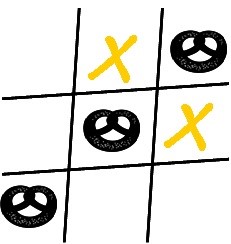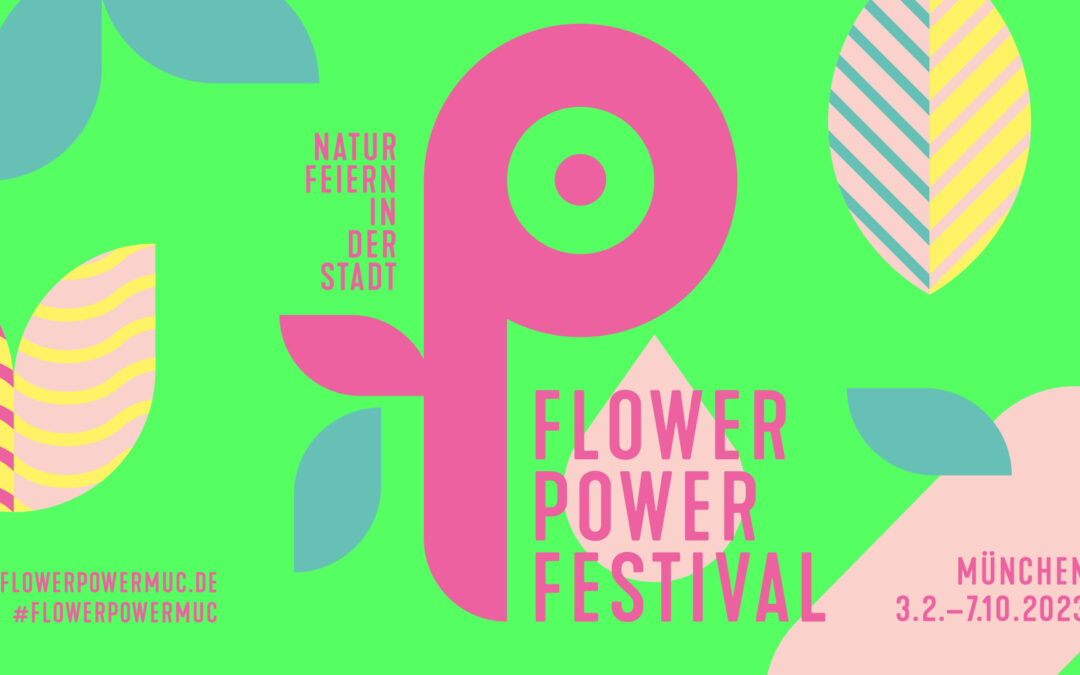Flower Power Festival 2023
Diverse participants – and those who want to visit Munich? will be there with some tours
The Gasteig, Europe's largest cultural center, the Munich-Nymphenburg Botanical Garden, the Bavarian Natural History Museum, and the Kunsthalle Munich are the driving forces behind the festival. The program also thrives on the contributions of many other Munich-based artists—and I was happy to participate.
Rich program
The festival program offers almost daily opportunities to explore the topic of nature in the city. You can find all events and more about the Flower Power Festival here. here:
My personal Flower Power tours
Some of my tours fit the theme very well, while others I've adapted slightly for them. The tours always last approximately two hours. You can find my tours in the festival program here.
Registration is easy via a Email me. Please indicate exactly which tour you would like to participate in, including the date if the tour is offered on multiple dates. You will then receive all the information regarding payment and the exact meeting point.
The tour takes you on a journey to the end of the 19th century! Among the fantastic Art Nouveau facades of Schwabing's side streets, it's a wonderful way to immerse yourself in a time when the longing for something new was taking root. But what drove the street artists of that time to develop such colorful alternatives to the monumental architecture of the city center that had proven itself for decades? How did the new style get its name? And how do you recognize a typical Art Nouveau building? Beyond all these questions, the main thing to do on this walk is to marvel and enjoy. Such exuberance wasn't always fashionable, so today's participants can especially enjoy the gems that have been preserved.
Somehow, every day in Haidhausen feels like the weekend! This may be due to the many small, colorfully decorated street cafés or the lovingly restored facades of the former hostelries. Or perhaps it's the lushly planted balconies and flower boxes, the facades covered in intoxicatingly fragrant wisteria, or the small, colorful green spaces that contribute to this feeling throughout the district. It's not for nothing that Haidhausen has become one of Munich's most popular residential areas. The walking tour sheds light on the development of the district and the time when the other side of the Isar was still a last resort for all those who could not possibly afford expensive Munich. But amidst all the misery, magnificent private parks could be found here as early as the 17th century. Furthermore, the topic of "housing" plays an important role, both then and now. In old Haidhausen, the question of having the right roof over one's head shaped today's streetscape.
Where else can you see so much white and blue sky – and in the middle of the city, no less! It's actually not entirely a given that such a large open space still exists in urban areas today. The people of Munich have this to thank, of course, for the Oktoberfest, which originated in 1810 with a horse race on agricultural fields far outside the city gates. Today, the meadow is nestled between stately Wilhelminian-era villas, an old "Tröpferlbad" (little bath) restored to its former glory, the old exhibition grounds, and a truly magnificent church. Overlooking the greenery are the Bavaria statue and the busts in the Hall of Fame, which are just as much a topic of discussion on this walk as the fact that the meadow's future was briefly at stake. Participants on the tour will also visit Theresienwiese's smaller green siblings: the recently redesigned St. Pauls Square and Bavaria Park with its inviting lawns.
On this tour, participants will walk through the Olympic Village, often through "housing arms" and "parking tongues," along often unfamiliar paths. The guide will explain the idea behind the conception of the complex, which, so soon after the Second World War, primarily addressed the question: How do you get residents to communicate with each other? This was important to the architects and urban planners not only for the Olympic athletes, but also for the many Munich residents who moved here after the 1972 Games. In secluded corners, guests can explore the village's infrastructure, marvel at the art on the 1972 building, and hear about the difficulties associated with maintaining the complex over the years. While crossing Conolly Street, the assassination attempt on the Jewish Olympic team in 1972 is naturally a topic, which is explored in more detail at the new "Einschnitt" memorial site. The route concludes with a visit to the colorful student village.
This varied tour takes you between the Olympiazentrum subway station, Connollystraße in what is now the Olympic Village, the former women's village for the athletes, and the Olympic venues – and probably without having to dodge a single car. When Munich was awarded the bid to host the Olympic Games almost 60 years ago, sustainable planning was implemented here, banning traffic or banning it underground. Especially in the park with its Olympic stadium, indoor swimming pool, and indoor swimming pool in front of the lake and the Olympic Hill, you can still feel the principle of hosting "Games in the open air." The sports facilities, tent roof construction, and landscaping form an artistic unity, thanks to the collaboration of architects, designers, and landscape planners, making the park a popular local recreation area for Munich residents today. A fantastic setting for immersing yourself mentally in a time 50 years ago.
And if you fancy Munich, just come along!
Registration is easy via a Email me. Please indicate exactly which tour you would like to participate in, including the date if the tour is offered on multiple dates. You will then receive all the information regarding payment and the exact meeting point.
I look forward to seeing you and send my best wishes
Grit


Recent Comments